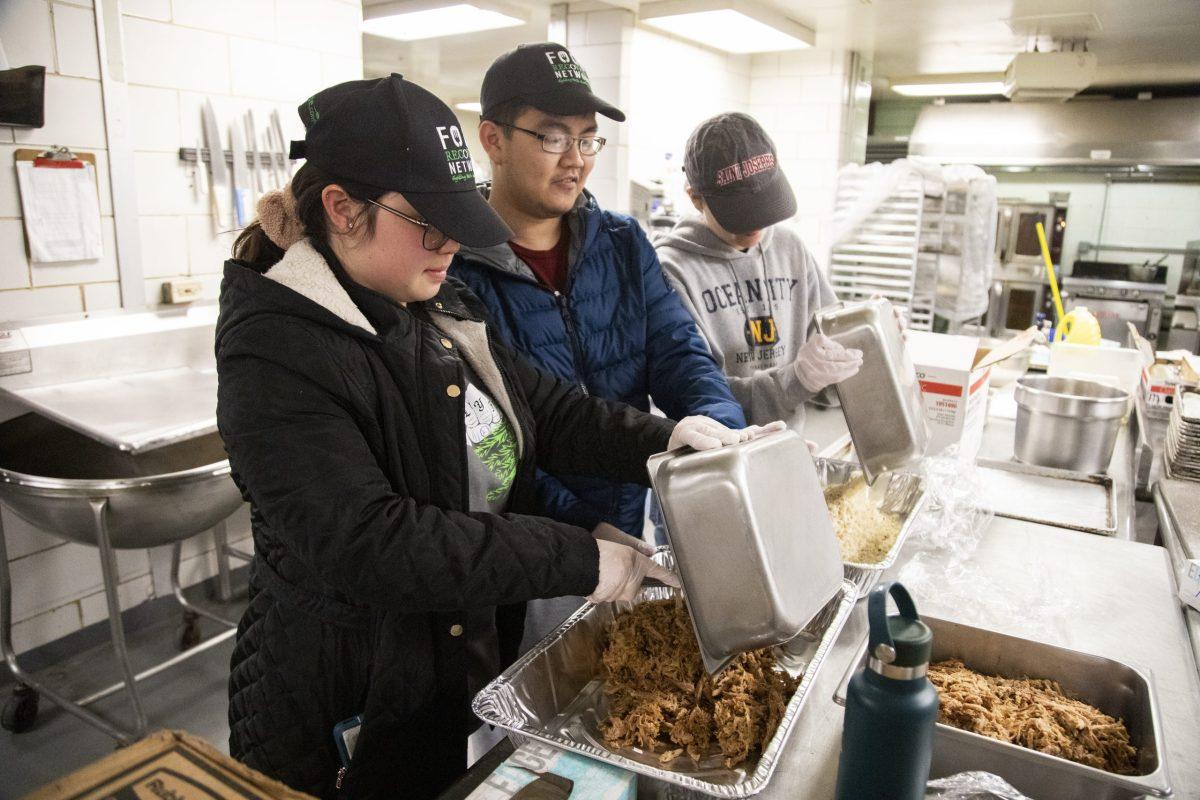A group of St. Joe’s students stood in the kitchen in Campion Dining Hall, heaping leftover portions of pork roast and stuffing into large steel food pans on a recent Monday morning.
The students are members of the St. Joe’s chapter of the Food Recovery Network, a national movement started by students at the University of Maryland in 2012 with the mission to unite students on college campuses to fight food waste and hunger. The St. Joe’s chapter began in 2014.
By the end of the evening, Irena Kondrat ’22, president of the St. Joe’s chapter, and other volunteers had packed up 39 pounds of leftovers to deliver to My Brother’s House, a homeless shelter for men in Center City Philadelphia.
“Our main goal is to fight waste and feed people,” Kondrat said.
Twice a week, Campion Dining Hall employees prepare trays of food for the Food Recovery Network to collect. The leftover food is usually a mixture of meat, vegetables or pasta.
On Fridays, the students also pack up and deliver dining hall leftovers to the chapter’s other partner organization, The Equity Project, a nonprofit community organization located in the Kensington neighborhood of Philadelphia.
“[These organizations] are nonprofits that help people outside the margins of society and don’t have social programs to help them or the means to help themselves,” Kondrat said.
The second part of the group’s mission is to decrease food waste on campus, including Campion Dining Hall and the Campion Food Court.
“Our main goal every semester is to save 250 pounds,” Kondrat said. “We did 360 pounds last semester, which was awesome.”

AJ Scruggs, a residential aide at My Brother’s House, uses what the students bring each Monday evening to create different meals for the residents.
“The guys love it,” Scruggs said. “They really appreciate the quality of the food and it’s not always coming out of a can. It’s more of a variety for them because turkey sandwiches, cheese sandwiches, peanut butter and jelly sandwiches get old after awhile.”
The students are looking to expand to other nonprofit organizations but have to get clearance from the national Food Recovery Network.
“We can’t expand our locations until we talk to them and get their approval, just for health reasons, because we are serving food to people,” said Maria Maldonado Weng ’20, a member of the organization’s executive board. “They want to make sure [the non-profit] is up to standards.”
The group will also be soliciting donations from students during finals week later this spring.
“It [is] a big donation before finals week,” Kondrat said. “We will work with the national Food Recovery Network to get a moving truck on campus, and we will have donation bins set up throughout campus and in the dorm halls for people to donate canned goods and nonperishables.”


































